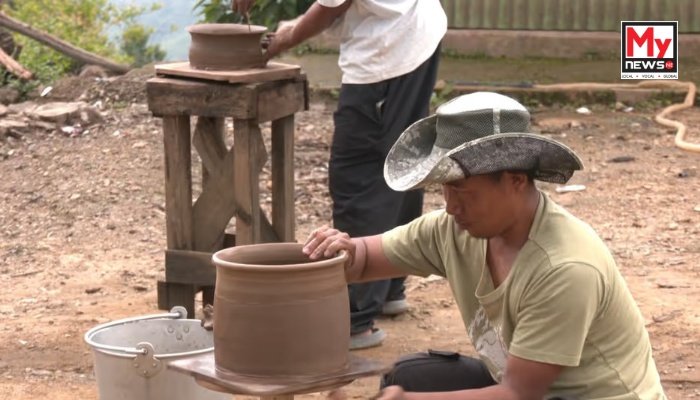Manipur’s Nungbi Black Pottery Carves a Niche in India’s Handcrafted Heritage
Imphal: In the hills of Manipur’s Ukhrul district, the village of Nungbi is keeping alive a centuries-old tradition that’s now becoming a lifeline for hundreds of families. Known for its distinctive black pottery, this Tangkhul Naga craft continues to flourish entirely through manual methods—free of potter’s wheels, electricity, or modern machinery.
The artisans of Nungbi work with a rare blend of natural clay and crushed serpentine stone sourced from nearby forests. The stone is painstakingly ground by hand into fine powder and mixed with water to form the base material. Shaped manually into a range of products, the clay pieces are sun-dried and later fired in open kilns. The eco-friendly process results in cookware and serveware that are not only heat-retentive and naturally non-toxic, but also elegant in their deep black finish.
Approximately 200 families in Nungbi depend on this traditional pottery as their main source of livelihood. Items like cooking pots, tea kettles, and serving bowls are increasingly finding their way to buyers across India, including in metropolitan markets like Delhi and Mumbai. The craft’s appeal is growing among a new generation of consumers seeking sustainable, handcrafted alternatives to mass-produced goods.
While production typically peaks in the winter months, artisans face challenges during the rainy season due to inadequate shelter and workspace. Many have voiced the need for improved infrastructure and government support to scale up production and sustain their income year-round.
As demand for authentic, artisanal products rises, Nungbi’s black pottery is not just surviving—it is gaining national recognition for its cultural depth and artisanal purity. Its continued success offers a blueprint for preserving indigenous traditions while boosting rural economies, all while celebrating the heritage and resilience of the Tangkhul Naga community.

